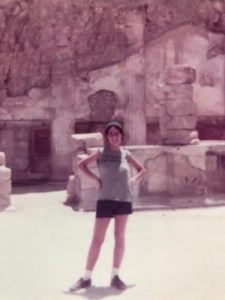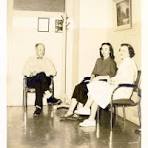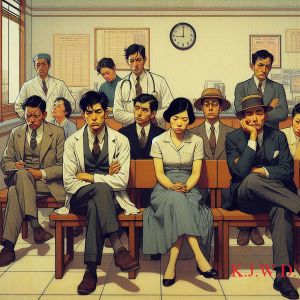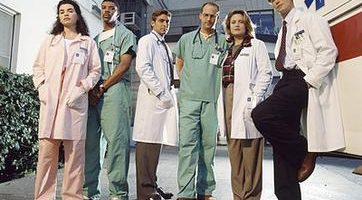One hot summer day in July of 1978, I flew into Terre Haute, Indiana. I must confess that Terra Haute had a peculiar oder. The airport was full of larger-than-life photos of their hometown hero, Larry Bird, who grew up down the road in French Lick. I rented a car, got directions and began my drive to Columbia House Records. I was about ten weeks into my new job as an Education Specialist for Advanced Systems, Inc., a company that provided video training for tech people of all stripes.
As an Education Specialist, I saw existing customers to help them decide what videos best suited their educational needs and ultimately, renew their contracts with the company; so my job was sales support and renewal. The contact person at Columbia House had not been seen by anyone from ASI in a LONG time.
This was the plant where records were produced. The lobby was small and had gold records and photos of their bigs stars like Barbra Streisand on the walls, but not much else in terms of decor. The chairs were plastic and not comfortable. Vendors probably did not spend much time there. I introduced myself to the receptionist and asked to see Roy Chitwood. I was told to take a seat and wait. And wait. And wait.
I was taught in my recent sales training class that the rule of thumb was to wait 10 minutes, then be on my way and make a new appointment, but I had traveled in from out-of-town and it became increasingly clear that Roy wanted to make a statement about his anger with my company. So I patiently waited. A half hour slipped by before he came out to greet me and usher me into his office. He had blond, curly hair, a thick mustache and wire-frame glasses. I sat politely as he vented his anger. He had bought a big (now obsolete) contract from us years ago, then not heard from anyone from the company until I called to set up our appointment. He let me have it. I heard him out.
“The customer is always right”. Another sales aphorism; more or less true (at least you try to appease the customer). I apologized. I told him that I would try to do better. We talked about ways to use what he had and swap out what was no longer useful (ASI had this problem with many of its older customer base and had devised a method to help). We got into a discussion about what was wrong with “the world”, “kids” (I was in my mid-20s but carried myself well), customer support and follow-through.
Then I broke another hard and fast sales rule: never talk about religion or politics (remember – this was a long time ago when the world was a kinder, gentler place, much less divided than it is today). I said, “those who don’t remember history are doomed to repeat it”. The point I tried to make was about the lack of education or appreciation for the history of what came before us – a point that seems increasingly relevant today. And to back up my claim, I told him how the battle for control of Jerusalem was won by Moshe Dayan in the 1967 War because he went back to the Bible and discovered an ancient text that described a forgotten path that gave him access to the old city (I no longer remember all the details, but something to that effect). This provided him the element of surprise and he won the battle.
Roy, a devout Baptist, loved this story. He probed a bit more, asking if I’d ever been to the Holy Land. I had been there to visit my brother, studying to become a rabbi, only a few years earlier. He became quite animated, invited me back if I’d bring photos from my trip. I promised I would if he would promise me the contract renewal. We agreed to our deal and each kept our bargain. I left out the photos of 19-year-old me in my little bikini at the Dead Sea.

At Masada, 1972
I thought about all of this because I recently heard a talk by Dr Kimberly Manning, a doctor at a hospital in Atlanta, GA and teacher at Emory who spoke about the human connection and how important it is. In her training, she learned (and teaches to her students), the importance of learning everyone’s names, saying “please” and “thank you”, just sitting with patients, learning from them, listening to them, being PRESENT.
In our hurried world, full of social media, with so little human contact, that made a big impact on me. Really listening to each other. She said she has a podcast and posts on Twitter a lot (I can’t call it X, that is ridiculous), even if is just to say that she has spoken at a conference. And she, in her 25+ years as a practicing physician, has witnessed a coarsening of the conversation. Now people don’t hide their identity when they come after her on Twitter, denigrating her, calling her names, no longer lurking in the shadows. They think it is OK to verbally abuse her good work because of who she is. She is an African-American, proud that she is a product of two HBCUs, who then did her internship and residency at Case Western Reserve in Cleveland, and for the first time in her life, learned how it felt to be a minority in the room. She observes people, defines herself as a “story-teller” (as I do of myself). She is not afraid to cry as she tells these stories. Her work is with the indigent and dying in Atlanta, and often has to leave their room to have a good cry. She tells her students it is OK to do just that. She weaves her own narrative into her clinical practice to prove her points.
I had to sit in a waiting room, doing penance to appease the anger of my customer 46 years ago, but I gladly heard him out and was rewarded for the effort. I listened to him and he listened to me. Are we no longer capable of listening to one another? Is this what we have become? Dr. Manning told us she awakens each morning with an affirmation, being thankful to open her eyes and start a new day. So perhaps, rather than dwelling on the chaos and hate, I need to learn from her and do the same.






